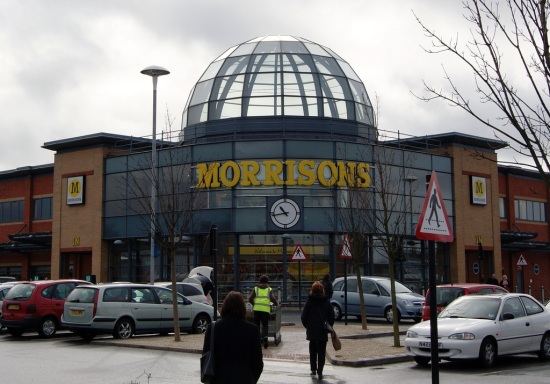Commercial property supermarkets are big business in the UK, with the “big four” raking in billions every year thanks to rapid expansion, multiple promotions and online initiatives. In fact, it is almost impossible to visit a town or city in the UK without seeing a branch of Tesco, Asda, Sainsbury’s or Morrisons on your way.

However, the current economic status of Great Britain means that even those retailing giants have to tighten their belts in order to remain profitable. Additionally, they are having to come up with whole new business models and expanding their horizons in order to draw customers into their stores.
This is why Morrisons has decided to decrease its new store space target by a third over the next two years, thereby saving £100 million per annum. Instead, the supermarket chain will enter into the internet grocery sector, along with launching the new Morrisons Cellar wine range. Although the retailer is a little late in joining the internet grocery shopping phenomenon, playing catch up with rivals Tesco and Asda, chief executive Dalton Philips is optimistic that the initiative will prove to be successful for the chain.
Morrisons plans to focus the majority of store expansion in the south of England, where it is currently outnumbered by rivals. In order to be more competitive, it also plans to launch its range of local convenience stores, called “M Local”, in London.
This follows on from the company pouring money into the refurbishment of many of its stores nationwide into the “fresh” range. These shops contain a more varied range of fruit and vegetables, as well as large delicatessen and meat counters. With a great deal of focus on organic produce and whole foods at the moment, as well as consumers looking for good value for money during the recession, Morrisons hopes that consumers will be encouraged to visit their “fresh” stores in favour of competitors with less variety in their ranges.
It certainly seems like the chain have to think outside the box when it comes to boosting trading, after a slightly disappointing first half report. Underlying sales dropped by 0.9 per cent in the six months to July 29th as compared to the same period in 2011, translating to a drop of £9 million in the chain’s pre-tax profit. However, underlying profits climbed by 1 per cent to £445 million, which goes against predictions by city traders.
Sir Ian Gibson, Chairman of the board of Morrisons, said; “With ongoing commodity inflation continuing to weigh on already fragile consumer confidence and market conditions becoming ever more challenging, we have had to work even harder for our customers during the first half.”
Do you believe that Morrisons’ strategy of focusing on supermarket openings in the south east of the country, as well as channelling more resources into the online initiative, will work in their favour to make the second half more profitable? Or do you think that the current economic situation in the UK means that, no matter what supermarket chains do, until the recession is sorted, all retailers will struggle to post positive results in terms of financial gains?
Previous Post
13.9 Billion Dollar Commercial Property Sales Set Canadian Record in First Half of 2012